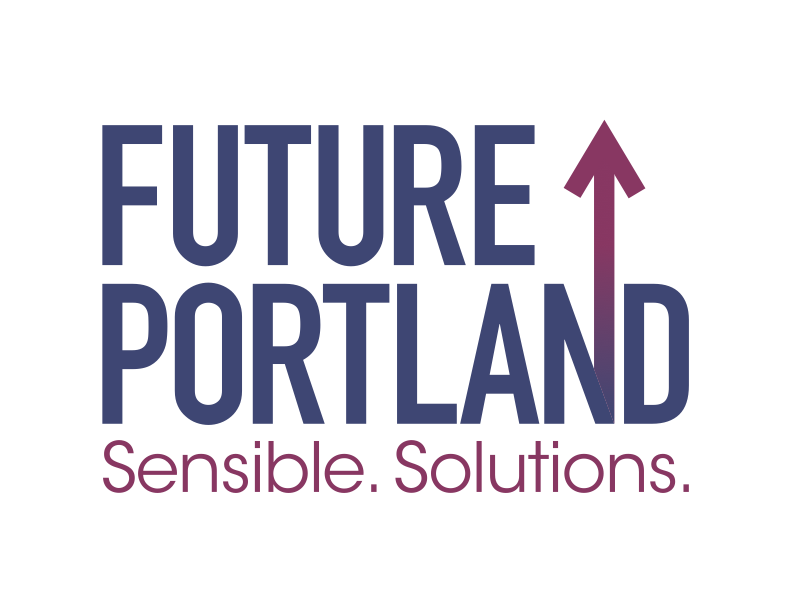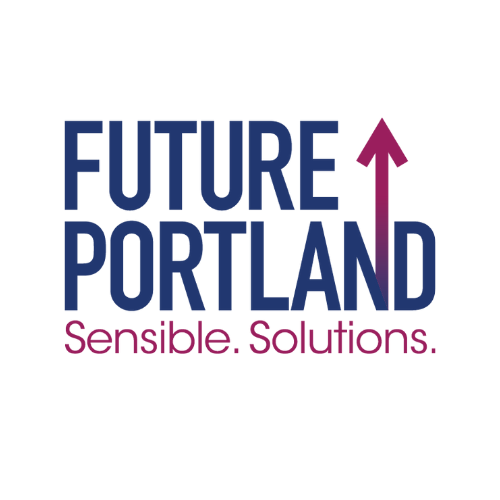Mingus Mapps lays out alternate plan to remake Portland government, hoping it will dampen support for more sweeping option
Portland Commissioner Mingus Mapps has a big ask for city voters deeply frustrated with City Hall and desperate to transform the way it functions.
First, reject an upcoming ballot measure that proposes sweeping changes to the city’s form of government and election system crafted by a citizen-led group and championed by a diverse coalition of backers.
Then, support an alternative that Mapps says he can push through the Portland City Council, which few residents currently trust or find effective, and land in front of voters next spring.
On Monday, Mapps will formally unveil a draft of the proposal he’s teased for weeks. He, and a political advocacy group he leads, shared a copy of it with The Oregonian/OregonLive in advance of his announcement.
Like the official ballot proposal, his alternate package would scrap Portland’s odd — and, many say, dysfunctional — commission form of government and create geographic council member districts.
But it would also give the city’s mayor more power than the measure on the fall ballot would grant.
And it would shy away from the official proposal’s most contentious provision, an unusual system to select council members that is not used in any other U.S. city and is similar to those chosen by only a handful of American municipalities.
His plan would, however, potentially usher in ranked choice voting, a nod to one of the proposals in the commission-endorsed ballot measure.
All told, Mapps said, his package would offer a simpler, less experimental overhaul than the proposal approved by the city’s 20-person Charter Review Commission.
“What we do next is going to make a difference for generations to come,” he said in an interview. “I think it’s important to get it right. Moving forward with a risky, untested form of government is worse than the status quo.”
Those concerns are front and center for Portlanders opposed to the current measure but who agree that city government needs dramatic change. They include longtime civic and neighborhood leaders predominately from the city’s west side, former Portland elected officials and City Hall staffers, and a smattering of wealthy businesspeople and power brokers.
Mapps, a onetime political science professor, has been among the most vocal critics of how City Hall operates since he took office in January 2021. Last year, he created a political committee to support charter changes, but he pivoted to fight the measure once its provisions were locked in.
The ballot measure would end Portland’s unique approach of having individual City Council members act as administrators over the city’s many bureaus and departments and turn most of that responsibility over to a professional city manager overseen by the mayor, which nearly all opponents favor.
The major point of contention is the proposal’s complex version of ranked-choice voting that would have voters simultaneously elect three council members from one of four geographic districts, leading to a 12-member council.
No U.S. city uses the precise system detailed in the Portland charter proposal, which would have candidates who place second and third in a ranked-choice tally take office as well as the winner. Each would only need 25% of the vote to win under the system, known as proportional representation or single transferrable vote.
Proponents have said Portland’s charter commission’s pathbreaking proposal would more fairly distribute power and offer better representation to communities that have historically lacked a seat at City Hall, including people of color, renters and low-income residents.
Groups including the Coalition of Communities of Color, the ACLU of Oregon and the Oregon Food Bank have thrown their support behind it, as have numerous other progressive organizations and about a dozen political scientists who teach in the Portland metro area.
Mapps, who earned his Ph.D. from Cornell, is more pessimistic.
“I can honestly tell you I’m not sure how this would work, or even if would work,” he said. “I don’t understand what problems it truly solves.”
Under Mapps’ draft proposal, Portland would create seven geographic council districts with a single member elected to each and place oversight of bureaus under a professional city administrator.
The mayor, elected citywide, would no longer be a voting member of the council, similar to the commission’s proposal. But unlike that measure, Mapps’ would allow the mayor to have veto power over legislation, which the council could override with a two-thirds vote.
Another key distinction in the Mapps measure is that it would ask voters separately to decide whether they want to keep traditional primary and general elections in Portland or switch to a fall-only version of “instant-runoff” ranked-choice voting that is used in places like New York City and Alaska.
The ballot measure the commission has put before voters is a single, all-or-nothing option. Commission members have defended the decision, saying that each main provision in the proposal is interdependent on the others.
Mapps, by contrast, said, “This discussion and consideration of alternative voting methods is quite interesting. But I think that deserves a separate vote.”
Should the current measure fail in November, Mapps said, he will attempt to usher his new charter reform proposal through the Portland City Council early next year. Such a referral would need only three commissioners’ yes votes to advance to the ballot.
He would not say whether he’s managed to line them up.
“I believe, at this point, we’ll have three votes to refer something to Portlanders in May,” Mapps said, declining to provide further details. “I’m 100% sure that, should the proposal before Portlanders in November fail, there’s zero chance council is not going to send something else to voters.”
His decision to move forward with an alternate plan has troubled many of the proponents of the current measure as well as one of Mapps’ City Council colleagues.
“We are witnessing the undermining of two years of exhaustive volunteer work by a diverse committee that was unanimously appointed by all of council,” Commissioner Jo Ann Hardesty said in scathing statement last month. “In this time of attacks on our democracy, the last thing we should be doing is undermining citizen led work.”
Mapps disagrees.
“This is not an attack on democracy,” he said. “This, I believe, is the crucial midpoint of an important discussion.”
He’s also taken heat for his process, or what critics claim is the lack thereof.
The charter commission spent more than a year seeking broad input from Portland residents, especially people of color, renters and those from low-income households. It conducted surveys, town halls and held regular public hearings and meetings.
Mapps, who is Black, said he derived his recommendations from speaking about charter reform and what the city’s future government could look like with countless Portlanders since he first launched his campaign for City Council three years ago, with a focus on this very issue.
“I don’t think that you should judge us by our process,” he said. “I think that you should judge us by our product.”
-- Shane Dixon Kavanaugh

